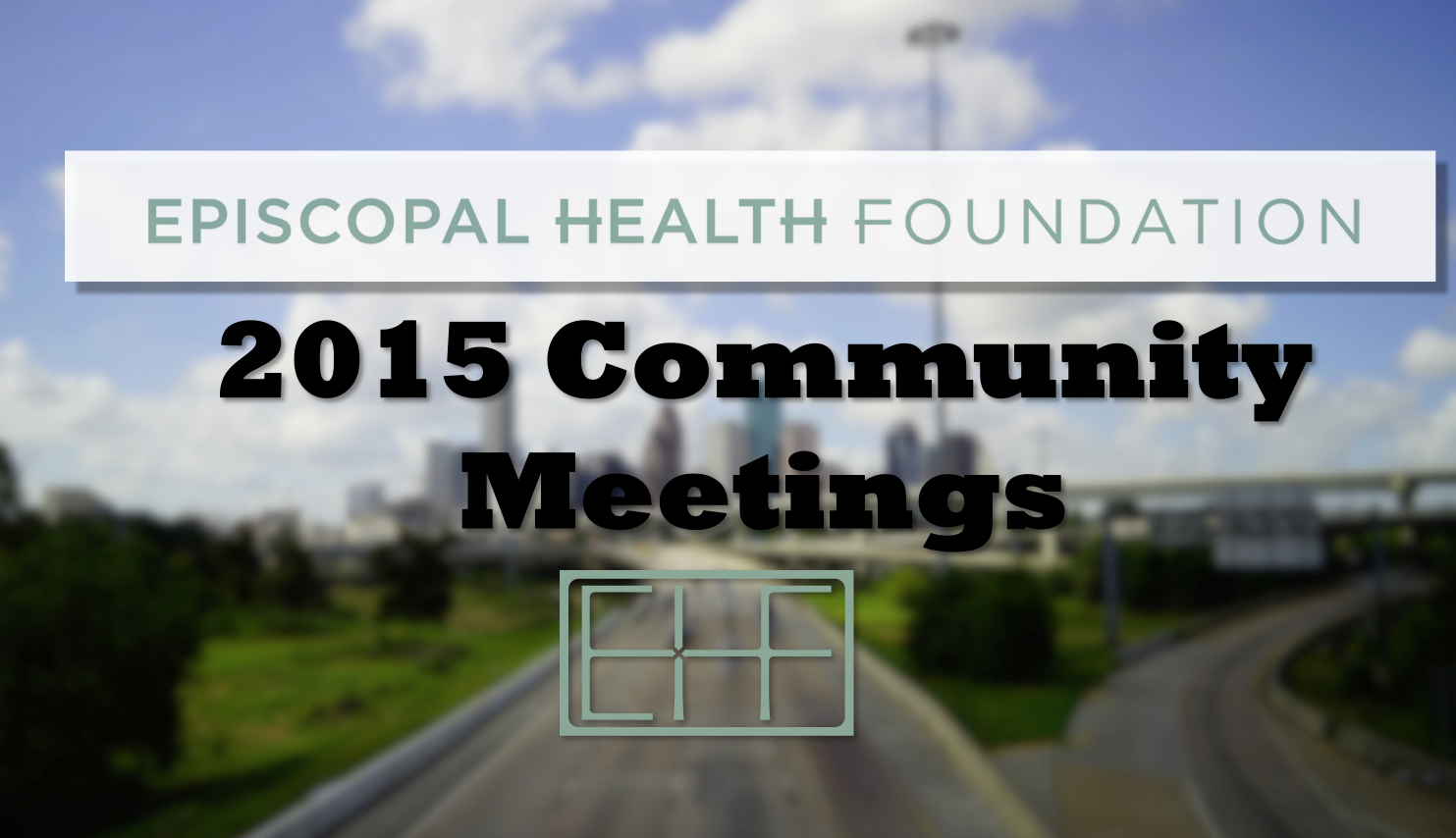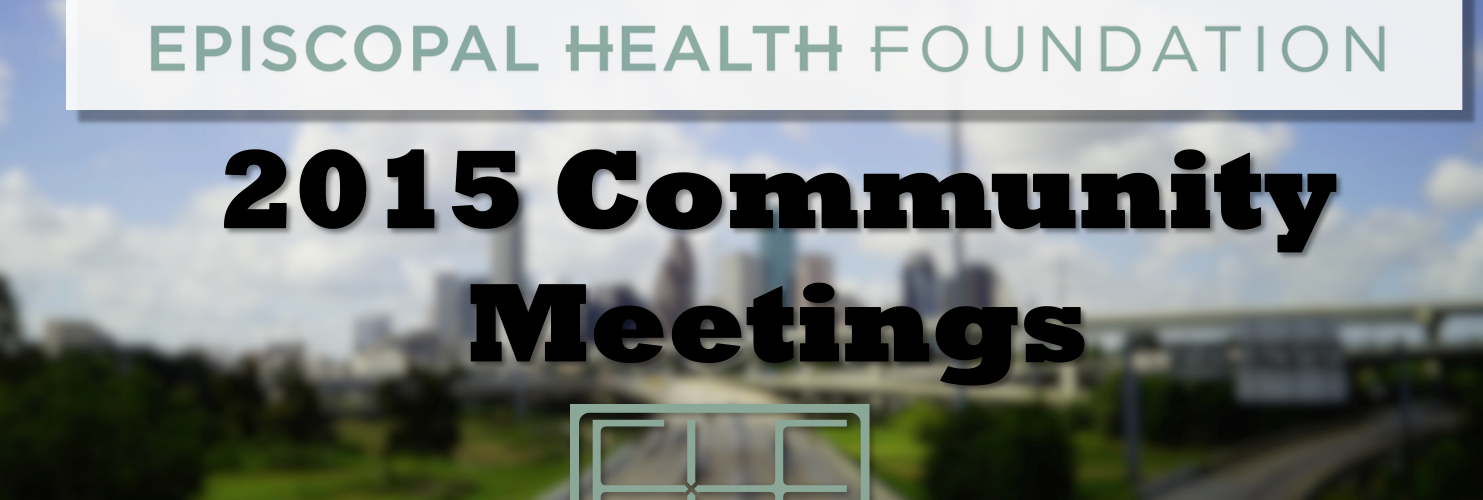
Last December the Episcopal Health Foundation—each and every staff member and several board members—took to the road to meet with community leaders across our 57 counties. These Community Meetings—or “Roadshows,” as we lovingly refer to them internally—brought together 225 people in Waco, Austin, Beaumont, Houston, Pasadena, College Station, Lufkin, and Tyler.
Here’s what a Roadshow looks like. Before we hit the road, we send information about our work and we ask questions of our guests to get them thinking about how EHF might work most effectively in their communities. During the meetings, we tell our story: who we are, our vision for healthy communities, our theory of change, and what we’re doing to make a difference. We talk about our convenings, our research, our congregational engagement, and, yes, we talk about our grant-making. What I really want is for people to understand that we are a knowledgeable, multi-faceted organization with staff who are ready to roll up their sleeves and work alongside community partners to do hard work. We give examples of our work. And then we ask our guests, “So what does this kind of work look like in your community?” And then we listen. For me, that’s the best part. I already know what I know—I’m there to listen and learn.
Our guests are generous with their time—they spend two-plus hours with us. We hear about what’s going well in their communities and we hear about their struggles. After a few Roadshows, we notice some patterns, some common themes. We also notice the differences among communities. Some seem organized and collaborative; others are working hard just to keep from slipping backward. Mostly what we hear is people are engaged in their work, passionate about improving health, and really creative in getting past hurdles. We take back so much information that it takes us quite some time to analyze it and report out.
The Roadshows are hard work for us. We’ve done them twice now, and we plan to hit the road again within a year. The first time, in 2014, people were curious about why we were doing this—some said it was “unfoundation-like.” By the second time, more people were used to us being on the road, out and about, but there was still some curiosity about why we were doing this.
So if it’s hard work, and “unfoundation-like,” why do we do this?
We do this because there is no substitute for being on the ground, in the communities we serve, alongside the people who live and work there. We do this because we will never know as much as the people doing the work, so we have to listen to them. We do this because we know that the creation of healthy communities is something that can only happen inside the communities themselves. And the only way we can be authentic partners in doing the work is to show up.
To read the report from our most recent Roadshow, click here.
